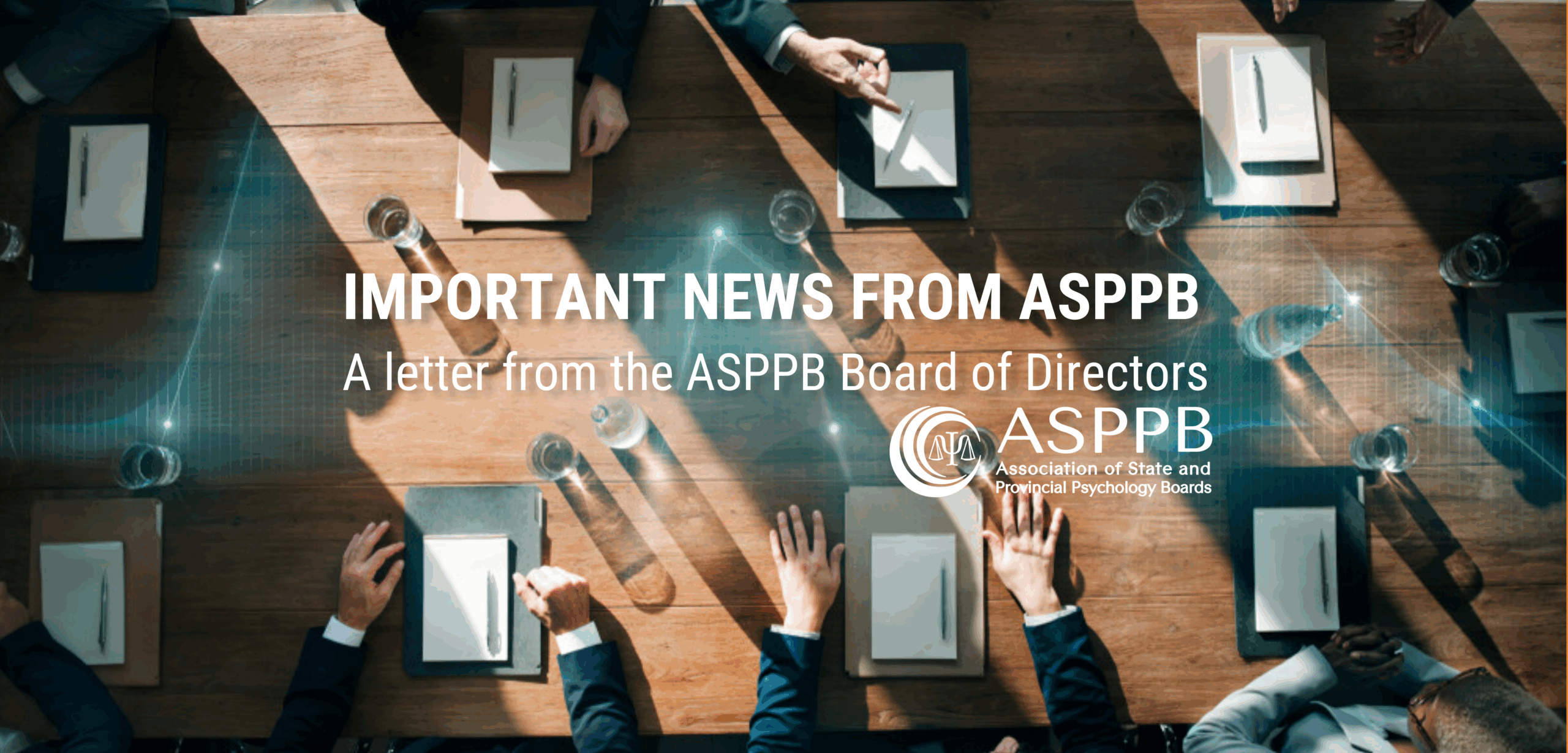Important Announcement from ASPPB

By now, you may have seen the June 25, 2024, letter sent to the Federal Trade Commission (FTC) by the Texas Behavioral Health Executive Council (TBHEC), a Texas regulatory body whose membership includes the Texas State Board of Examiners of Psychologists (Texas Board). In its letter, TBHEC makes the claim that ASPPB has violated federal antitrust laws by updating the Examination for Professional Practice in Psychology (EPPP) to include the Part 2-Skills component, effective January 1, 2026. TBHEC’s letter asks the FTC to investigate.
TBHEC’s allegations not only disregard the long development history and justifications behind the updates to the EPPP but also reflect a fundamental misunderstanding and misapplication of antitrust law principles. Contrary to TBHEC’s claims, this most recent evolution of the EPPP is not a pretextual effort to drive revenue. The development of the Part 2-Skills component of the EPPP is the result of a nearly 15- year, member-driven effort to ensure that the EPPP continues to effectively measure entry-level competence through the inclusion of a skills-based assessment— consistent with every other doctoral level health-service licensure examination offered in the United States. The updated EPPP is consistent with modern assessment standards and the longstanding recognition by ASPPB’s member jurisdictions that the measurement of theoretical knowledge alone is not sufficient to evaluate competency. Indeed, the study, development and planned implementation of the updated EPPP began at the request of ASPPB’s member jurisdictions in 2009 and has continued over the ensuing years with involvement and participation by those members (including Texas) throughout the process. Moreover, contrary to TBHEC’s claims, the EPPP—including this most recent update—is not intended to serve as a “barrier” to those seeking entry into the profession of psychology but, instead, is an important measure to ensure the safe and competent practice of psychology.
As for TBHEC’s assertion that the updated EPPP somehow violates federal antitrust laws, that is simply not the case. When TBHEC’s argument first surfaced a few months ago, ASPPB engaged the assistance of experienced antitrust attorneys from the international law firm Baker McKenzie. After studying the matter closely, our counsel have advised that TBHEC’s antitrust allegations are misguided and without merit. ASPPB is fully prepared to respond to any inquiries from the FTC regarding this matter. We remain focused on our important mission to support our member jurisdictions in fulfilling their duty of public protection.
For more information regarding the long history of the development of the updated EPPP, please see the ASPPB Board of Directors’ letter to our members dated July 1, 2024.